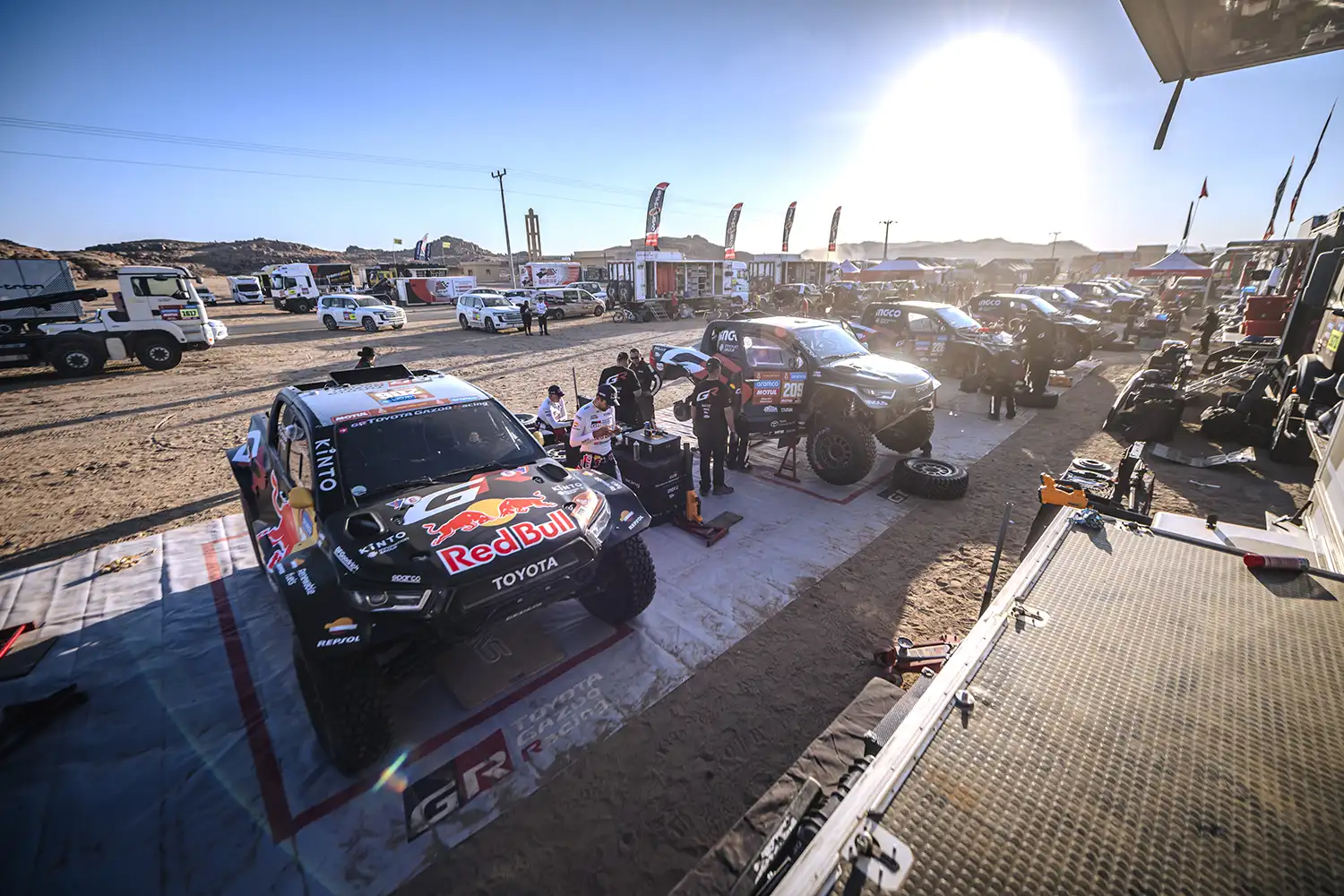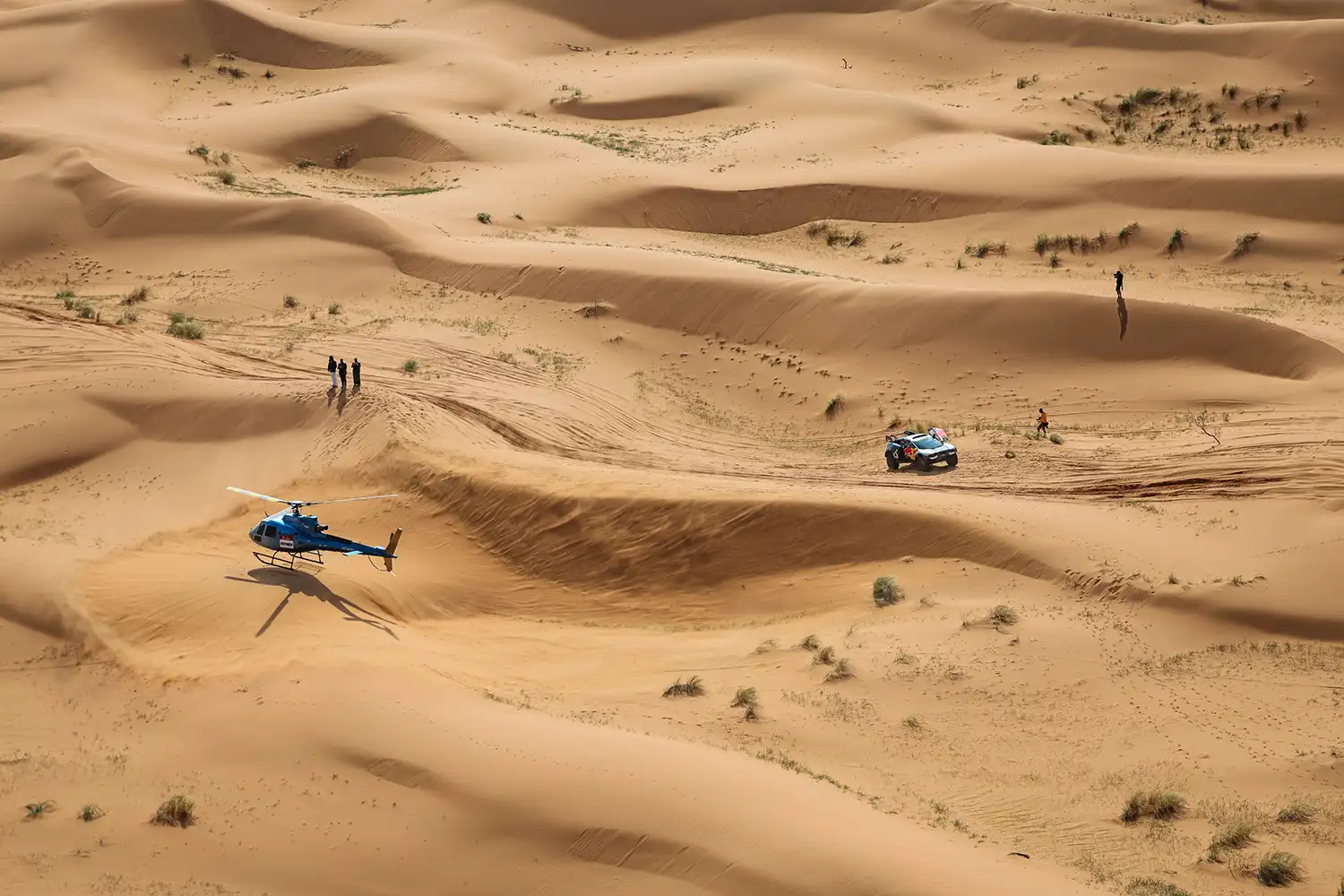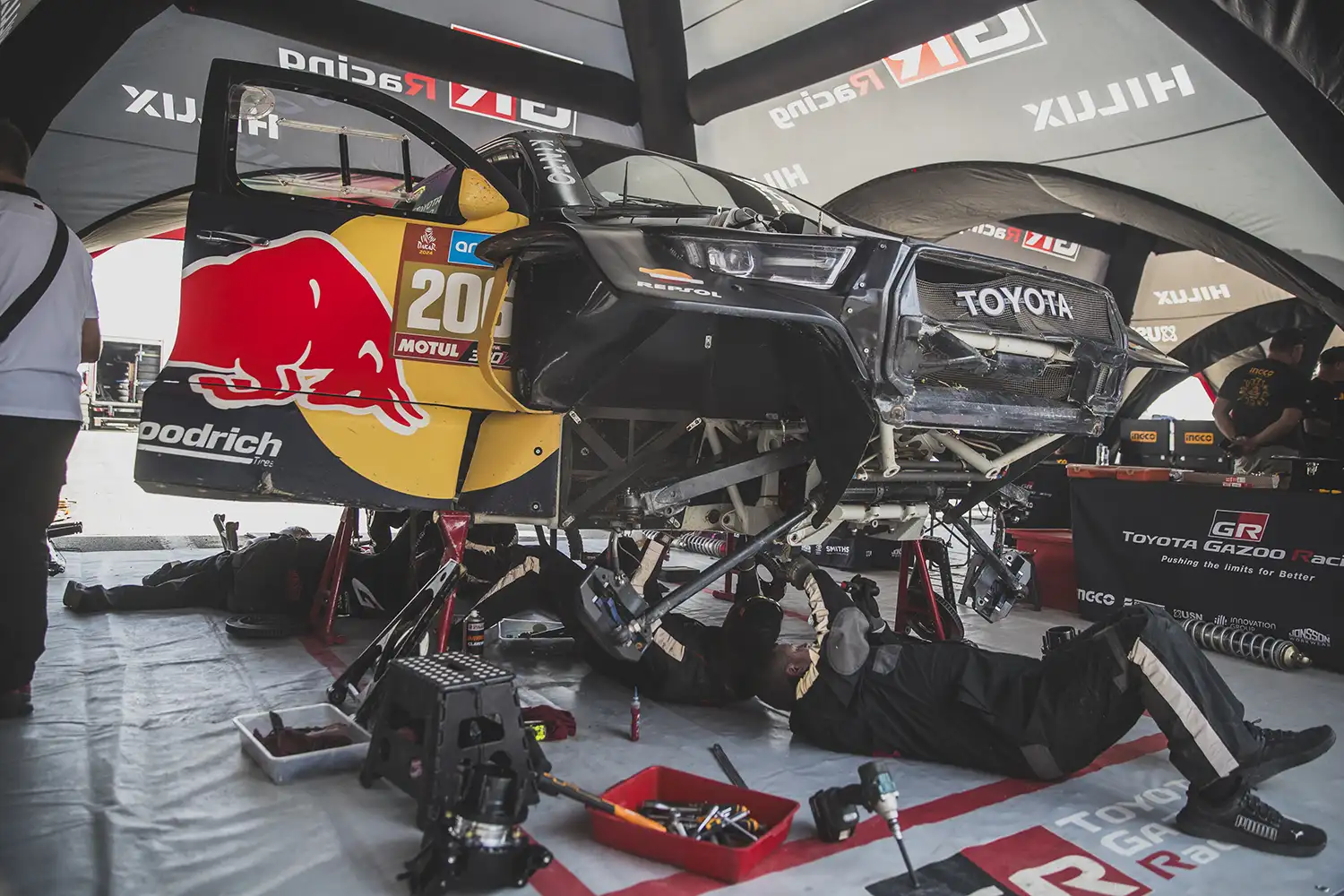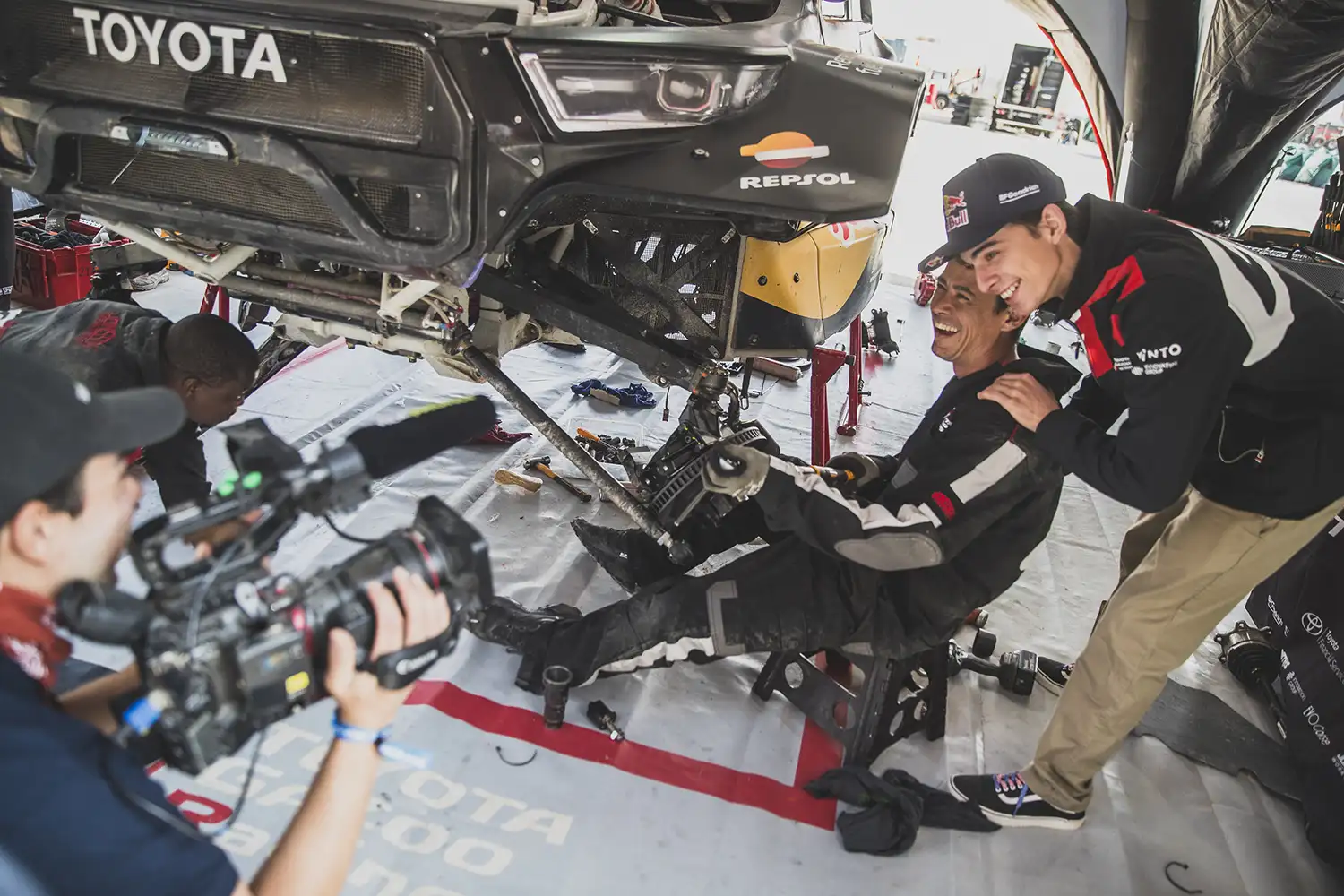
At the epicentre of the Dakar Rally, where the engines roar and the desert stretches endlessly, lies a bustling city that never sleeps – the bivouac. The penultimate episode of ‘In The Dust’ casts a spotlight on the unsung heroes working tirelessly behind the scenes to keep this temporary camp moving. These individuals – from the medical personnel to the team mechanics, technicians, catering staff, and media crews – form the backbone of the Dakar, ensuring that the entire operation runs smoothly from start to finish.
At the forefront of Dakar’s medical support are Florence Pommerie, ASO Medical Director, and Michi Krifter, KTM doctor and orthopaedic surgeon. Florence, despite not being a fan of racing, found her passion in emergency medicine and sports, making Dakar the perfect arena for her skills. The same goes for Michi, whose day kicks off at 3:30 am, tending to the physical well-being of riders and, later, drivers. His responsibilities include providing treatments, and massages, ensuring proper nutrition and electrolyte intake, and facilitating their recovery for the next challenging day.
“It’s not just my work, it’s a team’s work,” says Michi.
Over the 18 years Florence has been part of Dakar, she has observed a significant evolution in safety measures. The collaboration with FIA (that is, the International Automobile Federation), the implementation of speed restrictions, and the introduction of airbags on bikers’ jackets, have collectively contributed to a safer rally. However, challenges persist, particularly when riders enter the race shortly after undergoing surgeries, amplifying the importance of the medical team’s role.

Florence reveals the structured workings of Dakar’s medical response unit. Operating as a mobile powerhouse, the unit deploys helicopters, an ICU, air ambulances, and doctors strategically placed every 80 kilometres. The entire system is tracked in real-time, ensuring a rapid and coordinated response to emergencies.
In the event of an accident, Florence details the sequence of actions, stating: “When something happens, a doctor sends the red medical alarm, and dispatches one or more helicopters to the site of the accident. Then they call me and brief me, and I can start planning how and where to treat the patient.”
In serious cases, the Dakar medical team collaborates with local hospitals and personnel. For less severe injuries, a camp hospital within the bivouac becomes the treatment hub. This fully-equipped facility houses surgeons, an anesthesiologist, radiologists, physiologists, emergency doctors, and nurses, and features a truck equipped with a CT scan.
Switching gears from the medical domain, the episode explores the logistical intricacies of the Dakar with Jordi Duran, Overdrive Racing Team Manager, and Arnaud Calestroupat, ASO Logistic Master. In his own words, Jordi is the man “that does almost everything” for the Toyota Overdrive team, manages the team, and ensures everything falls into place. On the other hand, Arnaud is the mastermind behind logistics and operations, setting up the race’s needs and requirements.

The logistical challenges faced by Arnaud are immense, from orchestrating the movement of race cars from Europe to Saudi Arabia to constructing the bivouacs or mini-cities scattered across the desert. This mammoth operation involves setting up nine bivouacs, with most of their components requiring daily relocation. Each bivouac caters to around 9000 people, showcasing the staggering scale of the undertaking. Arnaud recalls a particularly challenging moment last year when flooding threatened one of the bivouacs, forcing a rapid reorganisation of the entire race logistics.
The planning behind an event as big and complex as the Dakar Rally is meticulous, with preparations commencing a year in advance. Once the sports team in the ASO department finalises the race details, calculations are made for the number of bivouacs, airports, kilometres of roads, and specific requirements. The initial priority is organising the loading of a vessel in Europe for transporting the cars. Approximately 80% of the fleet is loaded onto this vessel, making its arrival in Saudi Arabia crucial for the Dakar.
“If the vessel does not arrive in Saudi Arabia, there is no Dakar. Therefore, we focus on that first, and then we deal with the rest,” says Arnaud.
As the episode unfolds, we learn about the camaraderie that extends beyond the competitive spirit. The medical team battles to keep riders in top shape, while the logistical team manoeuvres the complexities of creating a city in the desert. The stories shared by these unsung heroes reveal a side of Dakar rarely seen – the challenges, the triumphs, and the shared dedication to making this iconic race a success.
Unveiling the efforts behind the racers, Episode 7 of ‘In The Dust’ showcases the pivotal contribution these champions make in ensuring the wheels keep turning and the rally’s heart keeps beating.
